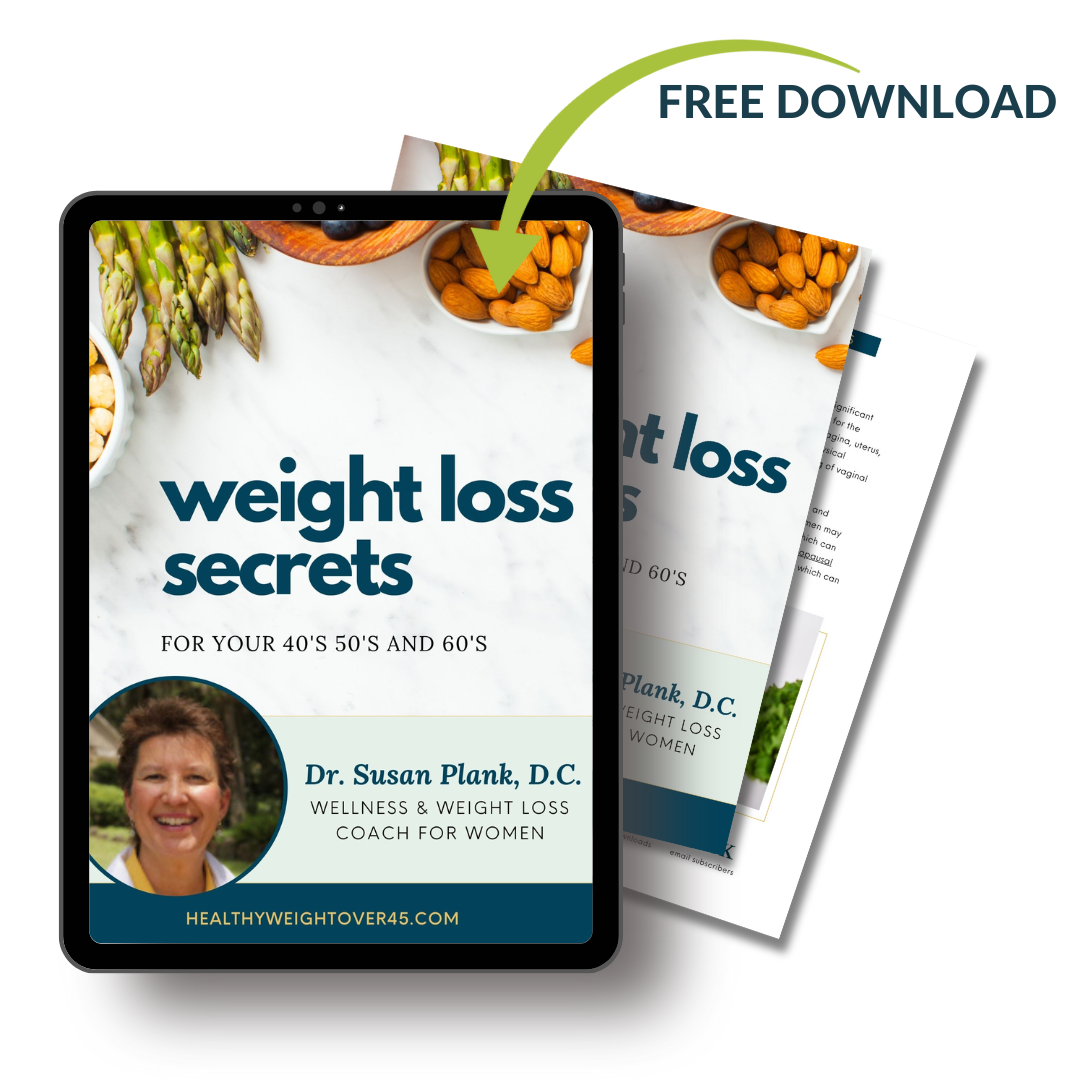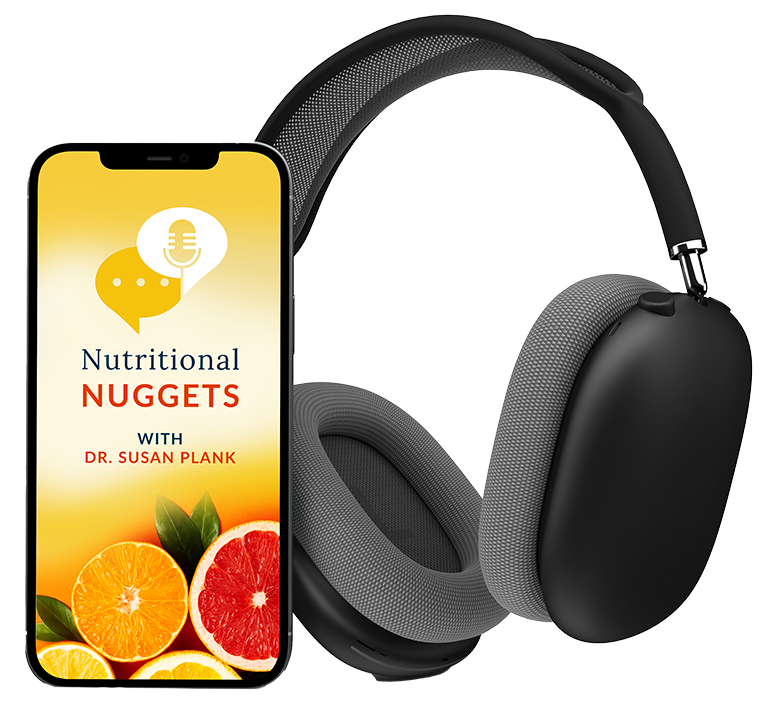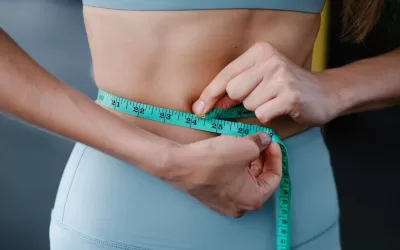The keto diet is a low-carb, high-fat diet that allows your body to switch from using glucose (sugar) as its primary source of energy to running on ketones. If you have just started following the keto diet and are wondering what ketone is, this guide will give you a thorough introduction.
Understanding the Keto Diet
The ketogenic diet, commonly referred to as the keto diet, is a high-fat, low-carbohydrate diet that has become increasingly popular in recent years. The diet involves consuming foods that are high in fat, moderate in protein, and very low in carbohydrates.
By reducing carbohydrate intake, the body enters a metabolic state called ketosis, in which it burns fat for energy instead of carbohydrates. This can lead to weight loss and improved blood sugar control for those with type 2 diabetes.
Some popular foods on the keto diet include meats, fish, eggs, dairy, nuts, seeds, and low-carbohydrate vegetables. However, foods such as grains, sugars, and most fruits are typically avoided or limited in the diet.
It’s important to note that the keto diet is not suitable for everyone and should be approached with caution, especially for those with certain health conditions or on certain medications. It’s always a good idea to consult with a healthcare professional before making any significant changes to your diet.
The macronutrient percentages for a keto diet can vary depending on the individual and their specific goals. If you are going to undertake a keto diet I recommend you use a food-logging app and be fastidious about measuring and logging your foods.
What are the macros for a keto diet?
- Carbohydrates: 5, maybe 10% of daily caloric intake
- Protein: 20-25% of daily caloric intake
- Fat: 70-75% of daily caloric intake
- Women: 70% fat, 20% protein, 10% carbohydrate
In general, the goal of the keto diet is to keep carbohydrate intake low enough to promote ketosis, while still getting adequate protein and enough healthy fats to meet your daily energy needs.
What are ketones and why are they important on the keto diet?
Ketones are molecules that the body produces when it burns fat for energy instead of carbohydrates. This happens when carbohydrate intake is low, such as on the keto diet.
The three types of ketones that are produced in the body are acetoacetate, beta-hydroxybutyrate, and acetone. These ketones are used as an alternative fuel source for the brain and body when glucose (sugar) is not readily available.
Ketones are important on the keto diet because they are a sign that the body is in a state of ketosis, which is the goal of the diet. In ketosis, the body becomes more efficient at burning fat for energy, which can lead to weight loss and other health benefits.
Ketones can also have benefits for the brain, such as improved cognitive function and a potential therapeutic role in neurological conditions such as epilepsy and Alzheimer’s disease.

How do I know if I’m in ketosis?
Some people can feel when ketosis kicks in but usually it’s because they’ve tried doing a keto diet many times previously.
If you are seriously considering a keto diet, I highly recommend the following:
- Food logging app
- Smart scale: to measure your biometric readings not just your weight
- Food scale
- Urine test strips or other methods to measure ketosis
Here are some other alternatives to measure when you enter ketosis:
- Urine test strips: You can purchase urine test strips that measure the level of ketones in your urine. However, these strips may not be the most accurate way to measure ketosis, as they only measure the excess ketones that your body is excreting.
- Blood ketone meter: A blood ketone meter measures the level of beta-hydroxybutyrate (BHB) in your blood, which is a more accurate measure of ketosis. However, blood ketone meters can be more expensive and require regular testing.
- Breathalyzer: A breathalyzer measures the level of acetone in your breath, which is a byproduct of ketosis. However, breathalyzers may not be as accurate as blood ketone meters.
- Symptoms: Some people may experience symptoms of ketosis, such as increased thirst, dry mouth, bad breath, and decreased appetite. However, not everyone will experience these symptoms, and they may not be a reliable indicator of ketosis.
What are the benefits of being in ketosis?
- Weight loss: The keto diet can lead to significant weight loss, as the body burns fat for energy instead of carbohydrates.
- Improved blood sugar control: The keto diet may help improve blood sugar control, particularly for those with type 2 diabetes.
- Increased energy: Many people report feeling more energized and focused on the keto diet, as the body becomes more efficient at burning fat for energy.
- Reduced inflammation: The keto diet may help reduce inflammation in the body, which is associated with many chronic diseases but the foods you are eating on keto (dairy, eggs, etc.) may increase digestive issues, constipation, and digestive inflammation
- Improved cognitive function: Some studies suggest that ketones may have a positive effect on cognitive function, particularly in those with neurological conditions such as Alzheimer’s disease.
- Lowered risk of heart disease: The keto diet may improve markers of heart health, such as blood pressure, triglycerides, and cholesterol levels.
- Reduced appetite: The keto diet may lead to a decreased appetite, which can help with weight loss and weight maintenance.
What foods should I eat on the keto diet to promote ketosis?
This is when we get to the nitty-gritty of the keto diet. Many people hear keto and think, “Great, I’ll eat steak, eggs, cheese, every day.” Those foods will get you into ketosis but depending on your medical history, it might get you a prescription for a cholesterol-lowering drug too! Please do your best to incorporate healthy fats.
So, to promote ketosis, you should aim to consume foods that are high in healthy fats and low in carbohydrates. Here are some foods to consider:
- Meat and poultry: Beef, chicken, turkey, and other meats are high in protein and contain little to no carbs. opt for grass-fed or organic meats whenever possible.
- Fish and seafood: Fatty fish like salmon, tuna, and mackerel are high in healthy fats and low in carbs. Shellfish like shrimp and crab are also good options.
- Non-starchy vegetables: Vegetables like leafy greens, broccoli, cauliflower, zucchini, and asparagus are low in carbs and high in fiber.
- Nuts and seeds: Almonds, walnuts, chia seeds, and flaxseeds are all good sources of healthy fats and protein.
- Healthy fats: Coconut oil, olive oil, avocado oil, and butter are all good sources of healthy fats.
- Dairy: High-fat dairy products like cheese, butter, and cream are allowed on the keto diet, but you should limit your intake of milk and yogurt, as they contain more carbs.
- Low-carb fruits: Berries like strawberries, raspberries, and blackberries are low in carbs and high in fiber.
It’s important to note that while the keto diet emphasizes healthy fats, it’s still important to consume a variety of nutrient-dense foods to meet your daily vitamin and mineral needs.
How long does it take to enter ketosis on the keto diet?
It can take anywhere from 2-7 days to enter ketosis on the keto diet. Depending on the amount of sugar and low-fiber carbohydrates you ate up until starting the keto diet that glucose and blood sugar has to leave your blood. Once that happens Ketosis begins, here are a few factors to consider:
- Carbohydrate intake: To enter ketosis, you need to restrict your carbohydrate intake dramatically, usually to less than 50 grams per day. The more carbohydrates you consume, the longer it will take to enter ketosis.
- Physical activity: Regular exercise can help deplete glycogen stores (aka stored energy) in the body and promote ketosis more quickly.
- Individual differences: Some people may enter ketosis more quickly than others.
It’s important to note that the transition to ketosis can be challenging for some people, as the body adapts to burning fat for energy instead of carbohydrates. Some people may experience symptoms such as fatigue, headache, and nausea during the first few days of the diet, which is often referred to as the “keto flu.” However, these symptoms are usually temporary and can be managed with proper hydration and nutrition.
Can I eat carbs and still be on the keto diet?
To enter and maintain ketosis, it’s important to limit carbohydrate intake daily. While it’s technically possible to include small amounts of carbohydrates and still be on the keto diet, it’s generally not recommended, as it can make it harder to enter or maintain ketosis.
The goal of the keto diet is to shift the body into a state of ketosis, where it burns fat for fuel instead of carbohydrates. Consuming too many carbohydrates can raise blood sugar levels and cause the body to switch back to burning glucose for fuel, which inhibits ketosis.
That being said, everyone’s carbohydrate needs are different, and some people may be able to consume slightly more carbs and still maintain ketosis. This is why using a smart scale and a food-tracking app is very important. It’s important to experiment and find the right balance of macronutrients that works for your body and goals. Additionally, it’s important to choose healthy, nutrient-dense sources of carbohydrates when including them in your diet, such as non-starchy vegetables and low-sugar fruits.
Can I take exogenous ketones and enter ketosis?
Yes, taking exogenous ketones can help raise your blood ketone levels and put you into a state of ketosis, even if you haven’t restricted your carbohydrate intake. Exogenous ketones are supplements that contain ketones produced outside of the body, typically in a lab, and can be consumed in the form of powders, capsules, or drinks.
While exogenous ketones can be used to supplement a low-carb or keto diet, it’s important to note that they should not be used as a replacement for a healthy diet and lifestyle. Exogenous ketones may be useful for people who are transitioning to a keto diet, experiencing keto flu symptoms, or looking for an energy boost during a workout, but they should not be used as a long-term solution for weight loss or overall health.
It’s also important to note that while exogenous ketones or ketone supplements may contain a salt form, if you suffer from high blood pressure make sure to do your research and limit these ketone salts.
Are there any potential side effects of the keto diet?
Yes, there are potential side effects of the keto diet, particularly during the first few weeks of transitioning to a low-carbohydrate diet. These side effects are commonly referred to as the “keto flu” that I mentioned above, but they can feel very intense if you consumed a higher sugar and or starch diet previously. Here is a more extensive list of keto symptoms:
- Headaches: Some people may experience headaches or migraines during the first few days of the diet, as the body adjusts to the changes in carbohydrate intake.
- Fatigue: The body may initially experience a dip in energy levels, as it adapts to using fat for fuel instead of carbohydrates.
- Nausea and vomiting: Some people may experience nausea and vomiting as the body adjusts to the changes in diet.
- Constipation: The low-fiber nature of the keto diet can lead to constipation and digestive issues.
- Dehydration: The keto diet can cause an initial loss of water weight, which can lead to dehydration if proper hydration is not maintained.
- Bad breath: The increase in ketones in the body can lead to a fruity or metallic taste in the mouth, as well as bad breath.
- Mood changes: Some people may experience mood changes, such as irritability or anxiety, during the initial stages of the diet.
It’s important to note that these side effects are typically temporary and will subside as the body adapts to the changes in diet.
Can the keto diet help with weight loss?
Yes, the keto diet has been shown to be effective for weight loss, as it promotes the restriction of carbohydrates and an increase in fat and protein intake. By limiting carbohydrate intake, the body is forced to burn stored fat for fuel, leading to a reduction in body weight and body fat.
In addition to weight loss, the keto diet has been studied for its potential benefits in managing other health conditions, including:
- Type 2 diabetes: The keto diet has been shown to improve blood sugar control and reduce the need for diabetes medication in people with type 2 diabetes.
- Epilepsy: The keto diet has been used as a therapy for epilepsy since the 1920s, and has been shown to be effective in reducing seizures in both children and adults.
- Metabolic syndrome: The keto diet has been shown to improve markers of metabolic syndrome, a cluster of conditions that increase the risk of heart disease, stroke, and diabetes.
- Polycystic ovary syndrome (PCOS): The keto diet has been shown to improve insulin sensitivity and hormonal balance in women with PCOS.
- Neurological disorders: The keto diet has been studied as a potential therapy for a range of neurological disorders, including Alzheimer’s disease,
- Parkinson’s disease, and traumatic brain injury.
Is the keto diet safe?
Let me be honest, keto is not my diet of choice for myself or my clients. Mostly because it is very difficult to be sustainable in the long term and has to followed almost perfectly. Carbohydrates supply us energy, even if you get the desired health benefits from keto you will at some point start to become constipated and fatigued.
That being said, for most healthy individuals, the keto diet is generally considered safe when followed correctly. However, as with any diet, there may be potential risks and side effects associated with the keto diet, particularly during the initial stages of transitioning to a low-carbohydrate diet.
Some potential risks and side effects of the keto diet include:
- Nutrient deficiencies: The restriction of certain foods, particularly fruits, vegetables, and grains, may lead to nutrient deficiencies if not carefully planned and monitored.
- Kidney problems: The high fat intake on the keto diet may put a strain on the kidneys, particularly in individuals with pre-existing kidney conditions.
- Gallbladder problems: Rapid weight loss on the keto diet may increase the risk of gallstones in some individuals.
- Cardiovascular risks: The high fat intake on the keto diet may increase levels of LDL (“bad”) cholesterol in some individuals, which could increase the risk of heart disease in the long term.
- Electrolyte imbalances: The keto diet can cause changes in electrolyte balance, particularly in sodium, potassium, and magnesium levels, which can lead to symptoms such as fatigue, dizziness, and muscle cramps.
Who shouldn’t try the keto diet?
While the keto diet can be safe and effective for many individuals, it may not be appropriate for everyone. The following groups of individuals should not try the keto diet without first consulting with a healthcare professional:
- Individuals with pancreatitis, liver failure, or other liver conditions: The high fat intake on the keto diet may exacerbate these conditions.
- Individuals with a history of disordered eating: The strict macronutrient ratios and food restrictions on the keto diet may trigger disordered eating behaviors.
- Pregnant or breastfeeding women: The keto diet may not provide adequate nutrients for fetal or infant growth and development.
- Individuals taking medication for diabetes or high blood pressure: The keto diet may interfere with the effectiveness of these medications.
- Individuals with a history of gallbladder disease or gallstones: Rapid weight loss on the keto diet may increase the risk of gallstones.
- Individuals with kidney disease: The high protein intake on the keto diet may put a strain on the kidneys, particularly in individuals with pre-existing kidney conditions.
- Individuals with a history of heart disease: The high fat intake on the keto diet may increase levels of LDL (“bad”) cholesterol and potentially increase the risk of heart disease.
I believe the keto diet is an extreme diet. I believe care should be taken if you are going to attempt to eat a strict keto diet. I believe you would be wise to consult a functional nutritionist prior to undertaking a keto diet.
How do I maintain the keto diet long-term?

Maintaining the keto diet long-term can be challenging, but it is possible with the right strategies and mindset but it will be difficult. Here are some tips to help you stick to the keto diet for the long haul:
- Focus on whole, nutrient-dense foods: Choose high-quality, nutrient-dense foods like non-starchy vegetables, healthy fats, and high-quality protein sources to ensure that you’re getting all the nutrients your body needs.
- Plan ahead: Plan your meals and snacks in advance, and make sure you have keto-friendly options on hand so you’re not tempted to reach for non-keto foods when you’re hungry.
- Find keto-friendly alternatives to your favorite foods: There are many keto-friendly alternatives to popular carb-heavy foods like bread, pasta, and rice, so you don’t have to feel like you’re missing out.
- Practice mindful eating: Take the time to savor your meals and pay attention to how your body feels before, during, and after eating.
- Stay hydrated: Drink plenty of water and electrolyte-rich fluids to help maintain electrolyte balance and prevent dehydration.
- Stay active: Regular exercise can help support weight loss, improve overall health, and boost your mood.
- Connect with a support system: Join a keto support group or find a friend or family member who can offer support and encouragement on your keto journey.
Remember, the keto diet is not a one-size-fits-all approach, and it’s important to listen to your body and adjust your diet as needed to ensure you’re getting the nutrients you need and feeling your best.
Once I get my desired results on a keto diet, can I return to eating carbohydrates, and if, so, what will happen?
Yes, you can return to eating carbohydrates after reaching your desired results on the keto diet, but it’s important to do so gradually and in moderation to avoid shocking your body with a sudden influx of carbs. If you return to a high-carb diet too quickly, you may experience symptoms such as fatigue, bloating, and digestive discomfort.
When you reintroduce carbs, it’s important to choose healthy, complex carbohydrates like fruits, vegetables, and whole grains instead of refined or processed carbs like sugar, white bread, and pasta. You may also want to consider gradually increasing your carb intake over a period of weeks or months, monitoring your body’s response, and adjusting your intake as needed.
It’s worth noting that some individuals find that they feel better and maintain their weight loss results better on a lower-carb or keto-style diet, even after reaching their desired weight loss goals. Everyone’s body is different, and it’s important to listen to your body and find an eating plan that works for you in the long term.
It’s important to note that the keto diet is not suitable for everyone and should be approached with caution, especially for those with certain health conditions or on certain medications. It’s always a good idea to consult with a healthcare professional before making any significant changes to your diet.







